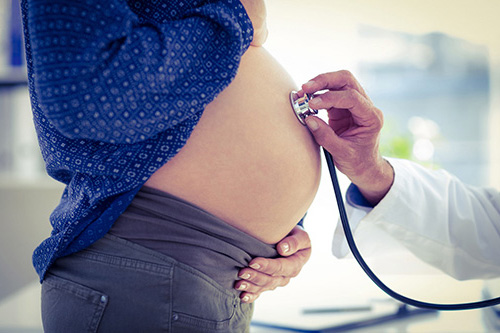Patient
Education
During pregnancy it is important to find reliable sources. We strive to provide our patients with accurate, up-to-date information about pregnancy.
Gestational Diabetes

Gestational Diabetes
Blood sugar tests are used during pregnancy to help diagnose gestational diabetes. Gestational diabetes occurs in patients who’s blood sugar levels are abnormally high, but typically there are little to no symptoms. Up to 18% of pregnancies in the US are affected by gestational diabetes. Expecting mothers who develop gestational diabetes have an increased risk of developing type II diabetes. With the help of a specialist, expecting mothers can manage their blood sugar through healthy diet, physical fitness, and watchful care of the baby.
Kidney Disease

Kidney Disease
During pregnancy, a mother’s body experiences necessary changes in acid-base, electrolyte, and renal function. These changes should be carefully monitored during the pregnancy of any woman with kidney disease. A team of physicians, lead by an experienced high-risk maternal fetal medicine specialist, is vital to achieving the best possible outcome.
Multiples

Multiples
Pregnancies with twins or more are automatically considered to be high-risk. The more babies, the higher the risk of pre-term delivery. Working with a perinatologist who specializes in multiples increases the possibility of achieving the best gestational age possible, avoiding the complications that often accompany extreme pre-term births. Valley Perinatal has one of the highest average gestational age for multiples.
Obesity

Obesity
Complications associated with being overweight, increase with a higher Body Mass Index (BMI). The BMI is based on pre-pregnancy height and weight. BMI that falls between 25.0 and 29.9 is considered to be overweight. Anything above 30.0 BMI is considered to be obese. One-third of women in the US are obese. Special care is given to pregnant women who are obese and may experience the associated complications.
Age Related

Age Related
Advanced age pregnancy encompasses any pregnant women over the age 35. Women over the age of 35 experience, with more frequency, difficulties getting pregnant. Because of this, there is a significant increase in the number of women who undergo fertility treatments. Fertility treatments increase the likelihood of complications during pregnancy. Advanced age pregnancies also increase the risk for chromosomal abnormalities or genetic problems that can affect the quality of life for the baby. Working with perinatologists increases early detection of complications and the best possible care for both mother and child.
Substance Abuse

Substance Abuse
The use of drugs, alcohol, and other psychoactive substances during pregnancy has led to various problems to include social issues, miscarriage, stillbirth, low birthweight, prematurity, physical malformations and neurological damage. For many women, pregnancy provides an opportunity to change lifestyles. Working closely with trained specialists and health workers provides access to support and healthy, safe advice during the pregnancy and the postpartum period.
Preeclampsia

Preeclampsia
Preeclampsia is a condition that results in high blood pressure, kidney damage, and other complications. Symptoms may not be apparent, but without proper care, it can be dangerous for both mother and baby. Trained physicians watch for high blood pressure and test urine for protein. Preeclampsia development typically occurs near the estimated date of birth and can happen up to six weeks following delivery. Under the care of a specialist, most expecting mothers have positive outcomes
Eclampsia

Eclampsia
This rare condition is considered a severe case of Preeclampsia. During pregnancy, eclampsia results in high blood pressure that leads to seizures. Seizures are disruptions in brain activity and may cause incidents of staring, decreased alertness, and convulsion or violent shaking. If an expectant mother experiences seizures, loss of consciousness, agitation, and unexpected headaches, muscle, or upper right abdominal pain, contact your doctor immediately. In the care of a specialist, the best possible outcome can be achieved.





